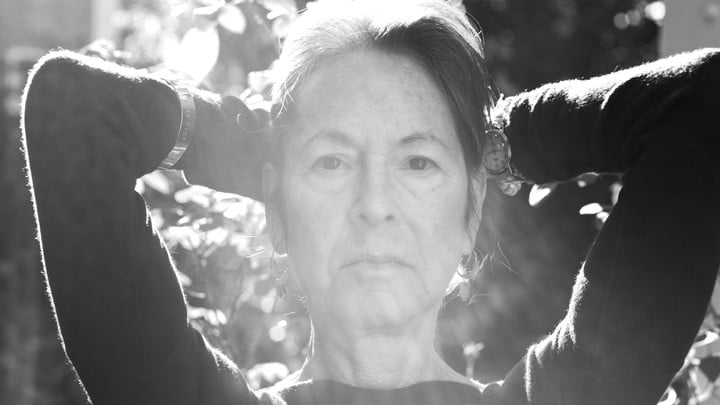The Makings of a Poet
Last Thursday, the Swedish Academy awarded the 2020 Nobel Prize in Literature to American poet and Stanford visiting professor Louise Glück, making her the 16th woman and 13th American to win the Prize. Besides her career as a writer, Gluck has been a professor of English at Yale and a visiting professor of creative writing at Stanford. Among the reasons listed for granting her the award, the Swedish Academy highlighted “her unmistakable poetic voice that with austere beauty makes individual existence universal.”
Glück was born in New York in 1943 and would later take poetry courses at Sarah Lawrence College and Columbia University. Her first book of poems, “Firstborn,” was published in 1968 and marked the start of a successful career spanning decades. With translations of her work into Spanish, Swedish and German, Glück’s literary prowess broke outside the limits of language and captivated audiences around the world.
Before winning the Nobel, Glück was already a distinguished poet, receiving some of the most prestigious awards of the English language, including the National Book Award, the National Humanities Medal and the Pulitzer Prize.
While Glück’s triumph in the international sphere serves as a recognition of a lifetime devoted to literary mastery, it also serves an important role for the Swedish Academy, the institution in charge of awarding the Nobel Prize. Her award comes amid a tumultuous time in the history of the award and might serve as an opportunity to rebuild trust in the academy.
Problems inside the Academy
In 2017, Jean-Claude Arnault, husband of Swedish poet and former Nobel committee member Katarina Frostenson, was accused of sexual misconduct by 18 women, giving rise to the largest controversy in the Nobel’s recent history.
After calls to remove Frostenson from the committee went unheard, three of the 18 members chose to resign as a sign of protest and three others later withdrew from the committee’s deliberation process.
Given the poor conditions inside the Academy in the rise of Arnault’s investigation, the committee decided to postpone the 2018 award ceremony to 2019, the first interruption in delivering the award since 1949.
It was expected that the committee would restructure itself and use the double award in 2019 to mark the results of a year of discussion and literary considerations. Instead, the awards were granted to Polish novelist Olga Tokarczuk and Austrian writer Peter Handke. Besides the return to Eurocentrism, granting Handke the award brought even more controversies to the Nobel committee.
Outside of the literary world, Handke is a known defender of the regime of Slobodan Milošević, who is responsible for various war crimes and atrocities. His political attitudes gained Handke a reputation as an apologist of the Milošević regime.
After Handke received the award, supporters were forced to question if the Academy had actually restructured itself as it originally promised, leaving them with little hope for the 2020 award.
Moving slowly toward the future
Many expected the committee would avoid further complications by granting the award to long-time nominees with vast public recognition. Among the most prominent names that circulated before the award ceremony were Japanese novelist Haruki Murakami and Austrian writer Milan Kundera.
Glück’s award was a surprise, but for the first time in many years of Nobel catastrophes, it offered a glimmer of hope.
In many ways, Glück is the desperately needed rebirth of the Nobel Prize, honoring her masterful career while also working toward gender inclusion and representation among the laureates.
The Nobel Prize still has a long way to go, even with Glück’s recent triumph. While gender disparity is by far the most significant problem within the committee, with only 16 out of 117 awards being granted to women. But an equal if not greater struggle for the committee has been to recognize the voices of racial minorities and writers outside of Europe and America.
After many years of disappointment, the 2020 award should be seen as a step in the right direction, not a complete shift. There is still the realistic fear that the small progress toward representation will be lost by next year. But after so many mistakes, the Academy must redeem itself slowly.
An unmistaken poetic voice
Outside the inherent and arguably unignorable politics of the award, the Nobel Prize serves as an opportunity to introduce the world to some of its best writers, connecting a new generation of readers with the world of literary prowess.
Glück’s poetry is known to explore the intricacies of family life by including both the joys of day-to-day experiences with the sorrows often hidden within them. In brief poems, she manages to explore the complexities of the individual in situations of grief and sorrow that are known to all humankind.
In the recognition of Glück’s work, the Nobel committee has used her poem “Snowdrops” to showcase her unmistaken poetic voice. Yet one cannot help but see it as a message for the Nobel’s revival — a hope that after a long winter, we shall see an even mightier spring.
I did not expect to survive,
earth suppressing me. I didn’t expect
to waken again, to feel
in damp earth my body
able to respond again, remembering
after so long how to open again
in the cold light
of earliest spring –
afraid, yes, but among you again
crying yes risk joy
in the raw wind of the new world.
Contact Jose Sabau at jlsabau ‘at’ stanford.edu.
